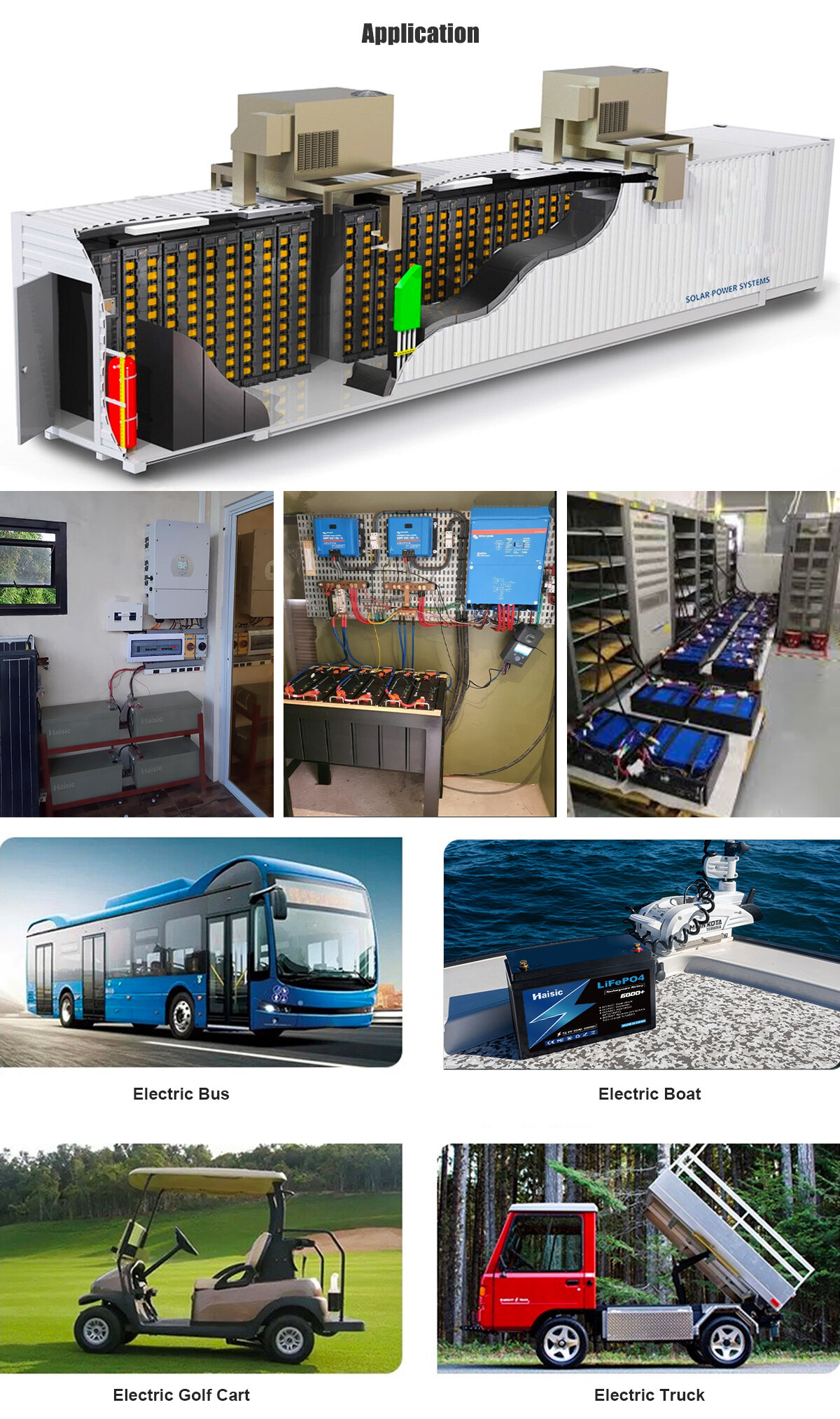Email format error
Email cannot be empty
Email already exists
6-20 characters(letters plus numbers only)
The password is inconsistent
Email format error
Email cannot be empty
Email does not exist
6-20 characters(letters plus numbers only)
The password is inconsistent

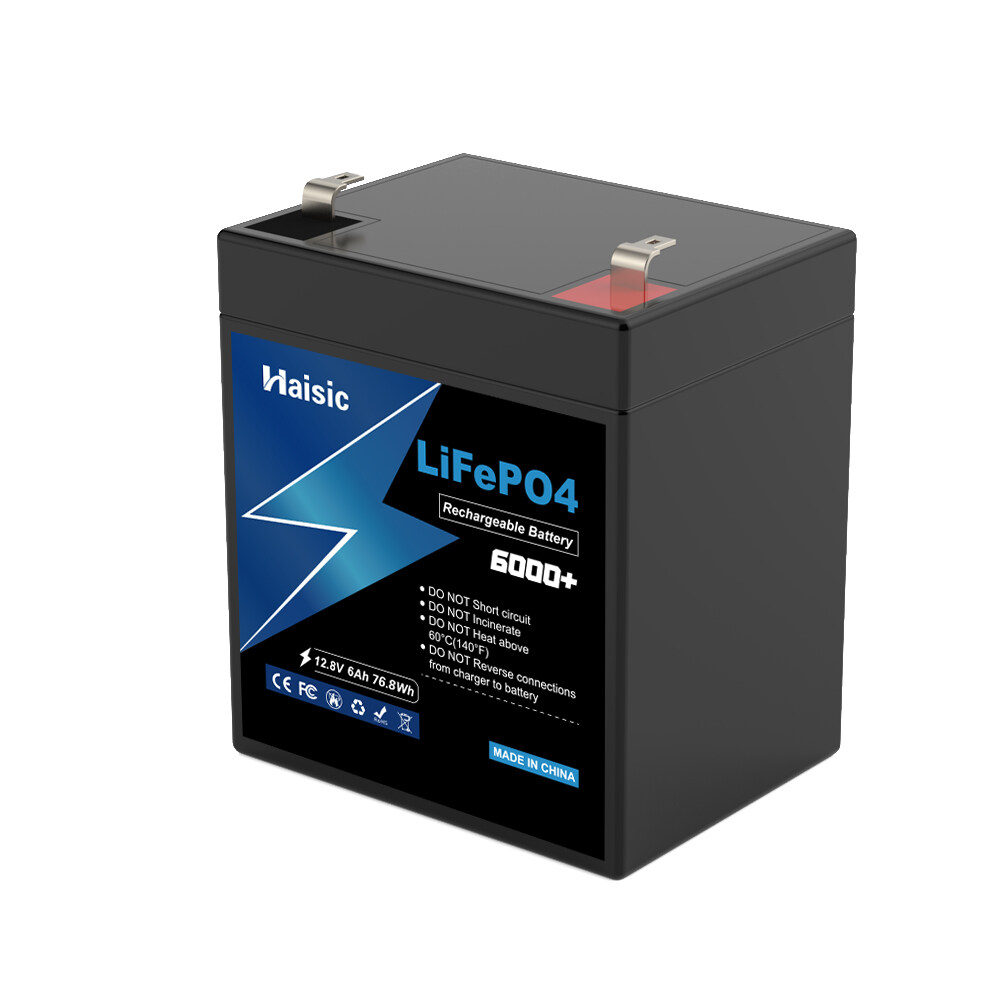
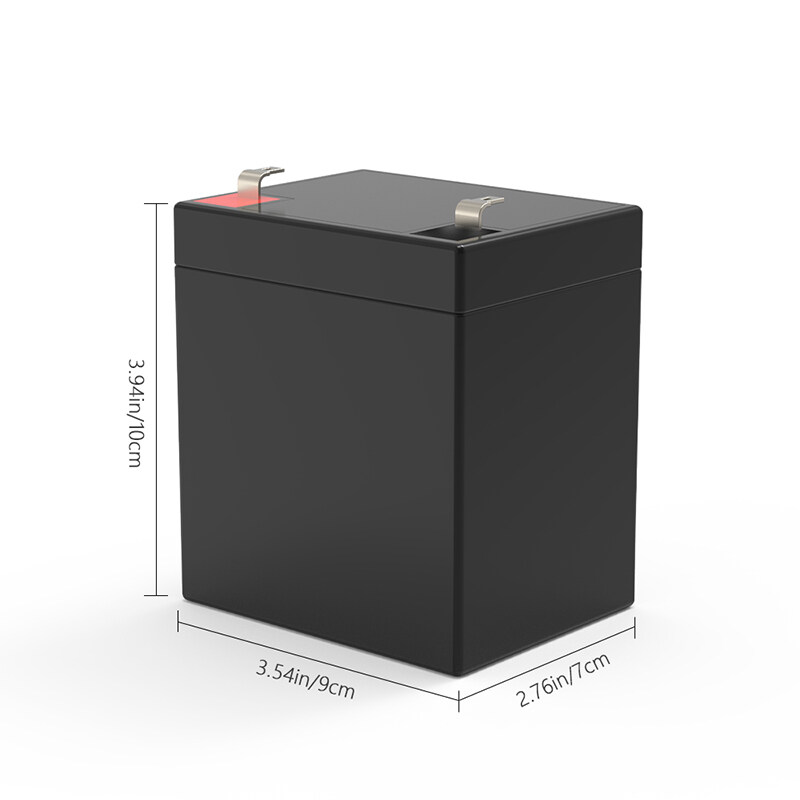
Lithium iron phosphate batteries have a lifecycle that is two to four times that of lithium-ion batteries. This is due in part to the fact that lithium iron phosphate is more stable at high temperatures, making it resistant to overcharging. Furthermore, lithium iron phosphate batteries can be stored for extended periods of time without degrading.
Advantages of Lithium Iron Phosphate (LiFePO4) batteries in solar applications
Battery Life.
Lithium iron phosphate batteries have a lifecycle of two to four times longer than lithium-ion. This is in part because the lithium iron phosphate option is more stable at high temperatures, so they are resilient to overcharging. Additionally, lithium iron phosphate batteries can be stored for longer periods without degrading.
The longer life cycle helps in solar power setups in particular, where installation is costly and replacing batteries disrupts the entire electrical system of the building. Solar panels and energy management systems currently have a life cycle of up to 20 or 30 years. A battery that remains efficient after more cycles will better match the lifespan of the solar power system as a whole.
Environmental impact.
Unlike basic Li-ion batteries, lithium iron phosphate batteries are built with non-toxic materials: iron, graphite, and copper. They are easily recyclable, and even able to be repurposed as new batteries. Recycled batteries are already available to consumers looking to lessen their environmental impact.
The longer lifespan of lithium iron phosphate batteries naturally makes them better for the earth. Manufacturing new batteries take energy and resources, so the longer they last, the lower the overall carbon footprint becomes.
Additionally, the metal oxides in lithium-ion batteries have the dangerous potential to leach out into the environment. While batteries are intended to be disposed of safely, many wind up in landfills, causing severe health issues for anyone living nearby. Lithium iron phosphate batteries contain phosphate salts instead of metal oxides, which have a substantially lower risk of environmental contamination.
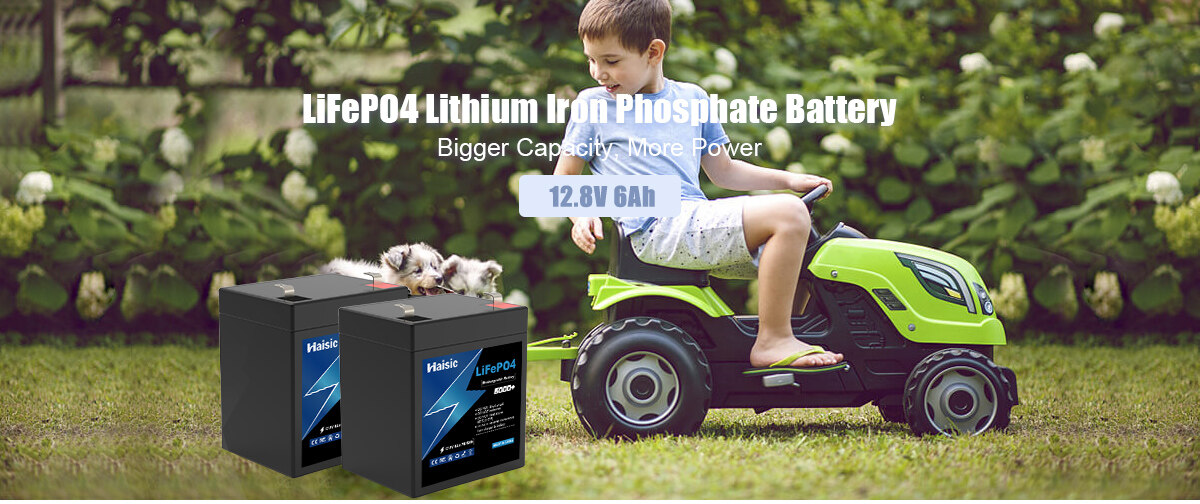
Product parameters
| Model | HS-12.8V6Ah |
| Application area | Outdoor and indoor UPS and battery back up systems; Portable and cordless household appliances; Medical equipment; Motorcycles, toy cars; Camping trailers, RVs, etc. Lighting equipment, emergency lights, etc. And many other applications |
| Cell Type | LiFePO4 |
| Volt | 12.8V |
| Capacity | 6Ah |
| Charge Voltage | 14.6V |
| Maximum Continuous Charging | 6A |
| Maximum Continuous Discharge Current | 6A |
| Weight | 0.696KG |
| Size | 90*70*100mm |
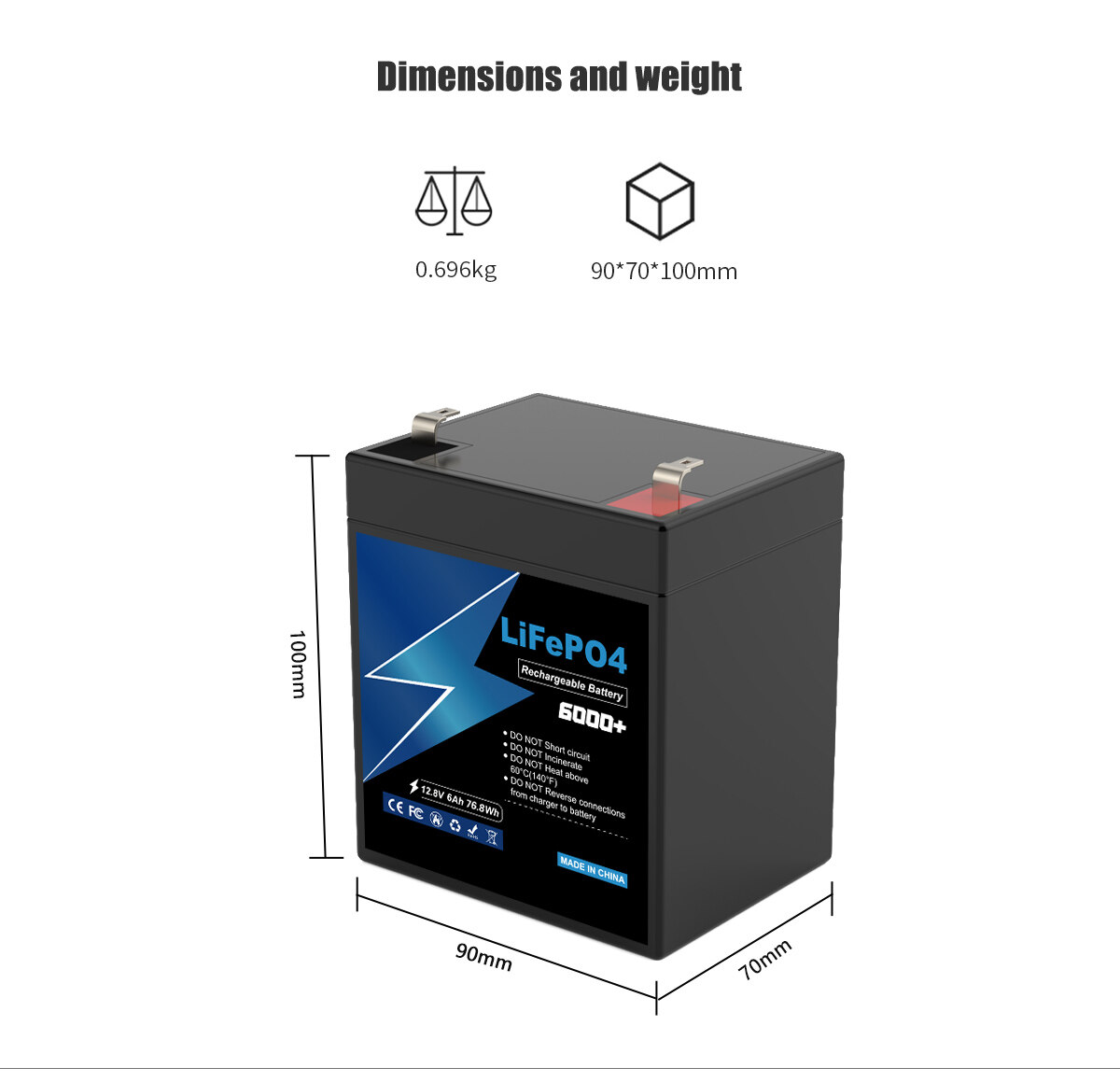
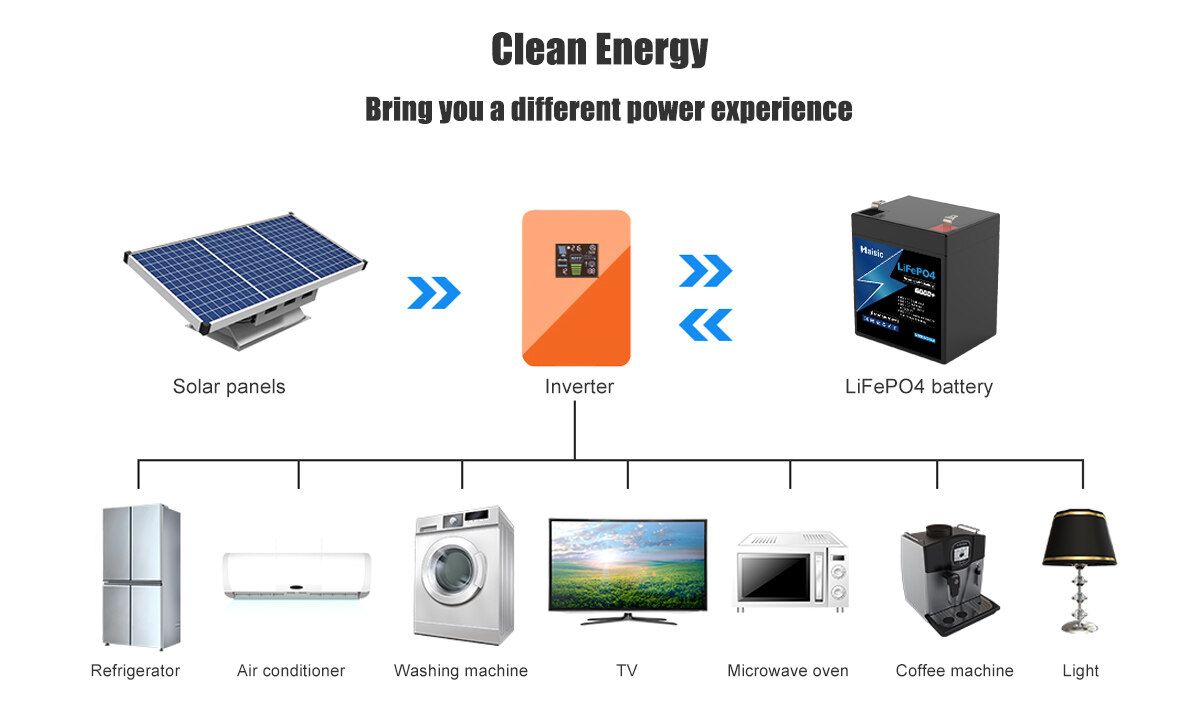
Safety.
Perhaps the strongest argument for lithium iron phosphate batteries over lithium-ion is their stability and safety. In solar applications, where batteries are often housed in residences or in proximity to highly occupied office buildings, safety is an extremely important factor to consider.
Because lithium iron phosphate batteries have a lower energy density than the lithium-ion type, a LiFePO4 battery has to be larger than a Li-ion battery to hold the same amount of energy. However, the trade-off for space is that the chemistry is significantly more stable at high temperatures. Lithium iron phosphate batteries are virtually non-combustible, even when handled incorrectly. The less toxic nature of lithium iron phosphate batteries also mitigates the risks of allergic reactions, accidental poisoning, and other medical hazards.
Cost.
The question on the minds of consumers and manufacturers is inevitable: which is cheaper to produce?
Luckily, in addition to all of the practical benefits of lithium iron phosphate batteries, they are also the more economical option.
There are a few reasons for this. The raw materials in lithium iron phosphate batteries are less rare and therefore less expensive than the cobalt in lithium-ion batteries.
Second, the materials in lithium iron phosphate batteries are safer to handle, so they are easier and cheaper to manufacture.
And finally, the longer life cycle of LiFePO4 batteries compared to Li-ion batteries passes on savings to the consumer, since the battery has to be replaced less often.
Depth of discharge.
The deep discharge capacity of lithium iron phosphate batteries protects them from damage due to depleting the energy in the battery too far.
LiFePO4batteries can be completely discharged without affecting the delivered capacity.
This advantage makes lithium-iron phosphate batteries ideal for solar setups because multiple batteries can be connected to increase storage capacity.
The batteries can then be discharged at different rates without any damage.
Discharge rate.
Lithium-iron phosphate batteries have the added advantage of a steady discharge rate. When needed, they can also discharge at a higher rate than lithium-ion batteries.
This means that when the power goes down in a grid-tied solar setup and multiple appliances come online all at once, lithium iron phosphate backup batteries will handle the load without complications.
